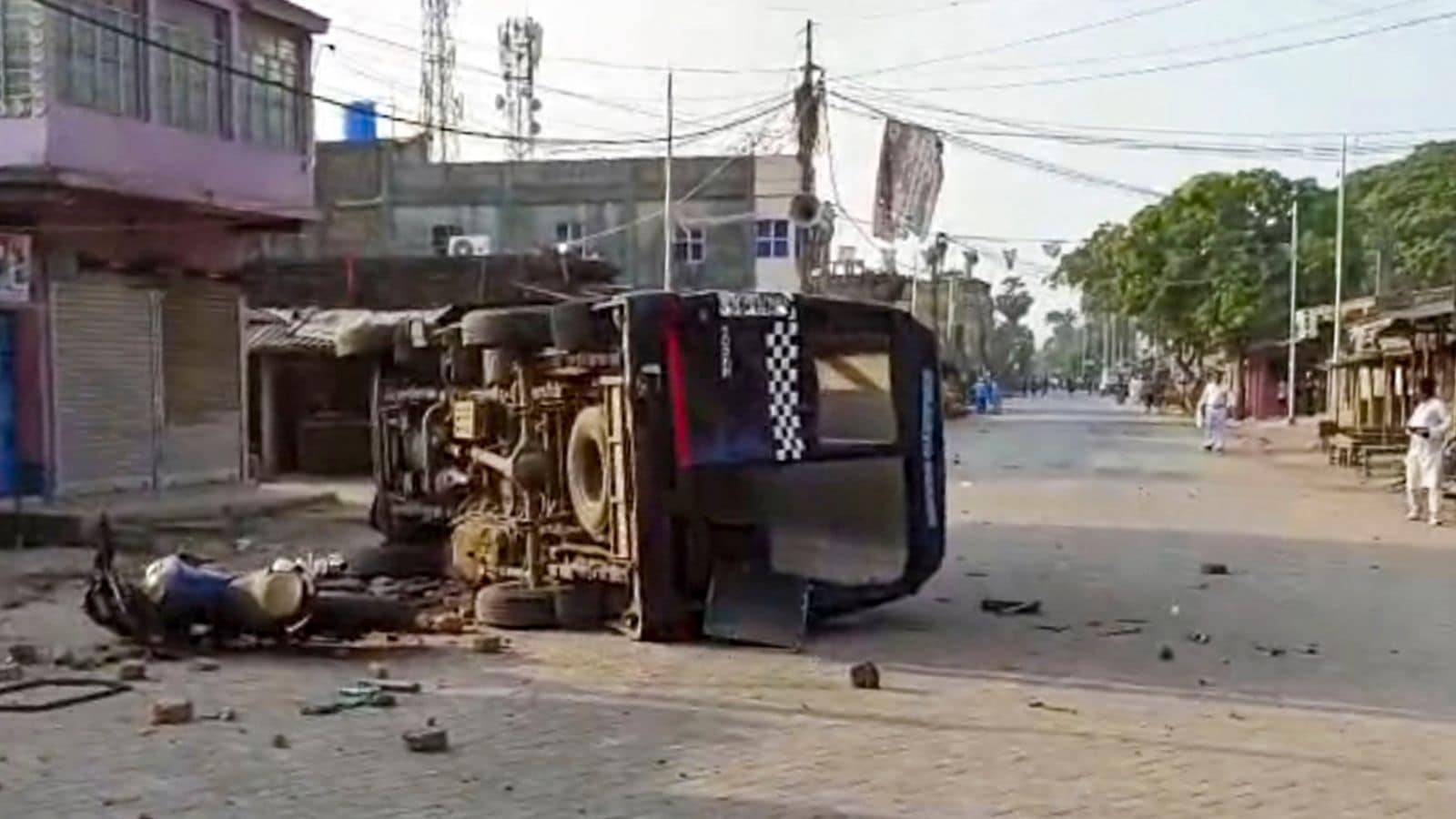A day after the Supreme Court red-flagged three key aspects of the Waqf Act, 2025 and suggested it could stay them, the Centre told the court on Thursday that it would neither make any appointments to Waqf Boards nor change the character of waqfs, including ‘waqf-by-user’ that are notified and registered as such until the next hearing on May 5.
Taking on record this assurance by Solicitor General Tushar Mehta, a three-judge bench presided by Chief Justice of India Sanjiv Khanna noted in its order: “It is also stated that till the next date of hearing, no waqf, including a waqf-by-user, whether declared by way of notification or by way of registration, shall be de-notified, nor will their character or status be changed.”

On appointment of non-Muslims to waqf boards, the SC took note of Mehta’s assurance that “till the next date of hearing, no appointments would be made to the Central Waqf Council and the Waqf Boards” by the Centre and if any state “makes any such appointment(s), the same may be declared void.”
With the Centre requesting a week to file an affidavit before the SC passes an interim order, the three-judge bench, also comprising Justices Sanjay Kumar and K V Viswanathan, deferred the cases challenging the constitutional validity of the Act to May 5. CJI Khanna retires on May 13.
“We clarify that the hearing fixed on the next date will be a preliminary hearing and, if required, interim orders will be passed,” the order stated.
The Centre had opposed the Supreme Court’s proposal to pass an interim order against the denotification of waqf properties, including ‘waqf-by-user’, aside from staying a provision allowing the inclusion of non-Muslims in the Central Waqf Councils and Boards.
The court granted the Union of India, the state governments and the Waqf Boards seven days to file their preliminary reply/response to the writ petitions. It also directed that a rejoinder affidavit to the reply/response of the respondents may be filed within five days from the date of its service.
Story continues below this ad
The SC had Wednesday indicated that it may stay some of the provisions of the amended Act including those related to waqf-by-user, inclusion of non-Muslims in the Waqf Boards and Council and the powers of the Collector to change the status of disputed waqf lands.
On Thursday, Mehta told the bench that it would not be appropriate “to consider staying directly or indirectly, based upon some prima facie or tentative reading of some of the sections.”
We will have to take your lordships through the history of legislation, the 1923 Act, which is a hundred years back, followed by 1935, followed by 1954, followed by amendment in 1984. There was a committee recommendation followed by 1995 and the amendment. And in the meanwhile, we as a government and as a Parliament, are answerable to people. We received lakhs and lakhs of representations which resulted into some of the provisions being made,” Mehta said.
for example, villages and villages are taken as waqf. Private properties of individuals are taken as waqf and I have orders which say when they approach the High Court, (they are told) these are disputed questions of facts. It is a considered piece of legislation,” Mehta said.
Story continues below this ad
He contended that it is a matter where the court would require assistance, “because it would affect either large number of innocent peoples, their right to land, their right to property…”
Justice Sanjay Kumar said the court wasn’t deciding the matter now.
Mehta said: “But your lordships are taking a very serious and harsh step in staying partly, indirectly, or in whichever way one may call it, some statutory provisions without complete assistance. My request is this… Allow me to place within a week, and I promise Your Lordships, it will come before Your Lordship within a week, my preliminary reply, some material documents with documents and statutes to show…This is not a matter which Your Lordships would also like to consider on prima facie reading.”
The CJI said, “Let me also very clearly put it. Somebody did say there should be complete stay. We said nothing doing… At the same time, we don’t want the situation to change…we don’t want whatever situation today is prevailing, to change so drastically that it affects…There are provisions like the provisions which you have enacted regarding the five years (requirement that to create a waqf, a person must have been a practising Muslim for at least 5 years), we are not staying that. All that we want to do… You are right absolutely. One of the thumb rules the courts apply, they don’t stay the legislation at the preliminary stage. At the same time, there’s another thumb rule… that when the matter is pending consideration before the court, the situation as it is prevailing today should continue so as not to upset the rights of the parties.”
Story continues below this ad
Mehta said, “I am not on merits…Even for the purpose of deciding what will be the fallout of Your Lordships order also, Your Lordships will need some documents. I’m saying it with a sense of responsibility that if you were to say something about waqf-by-user, what will be the fallout of that? Please hear us. Allow me to place material on record. One week, nothing would change, nothing can change.”
When the court sought to know what would happen if state boards make appointments in the interim, Mehta said: “…any state which is not represented (before the court) makes any appointment, may be treated as void.”
To a specific query about the status of the waqf-by-user registered under section 36 of the 1995 Waqf Act, the SG said that their status will not change “if it is declared, if it is registered.”
The CJI clarified that he was on registration under the 1995 Waqf Act. “If it is registered in terms of Section 36 of the 1995 Act. I am not talking about registration now,” said the CJI adding “we don’t want the position to change.”
Story continues below this ad
Mehta initially said that he will take instructions, “and I will possibly be able to say yes”, and eventually went on to give the assurance.
The law officer said that “the government does not want to over-reach your Lordship’s jurisdiction.”
Meanwhile, the court also directed that pending writ petitions challenging the 1995 Waqf Act and the amendments made to it in 2013 be shown separately in the cause list. “As a special case,” it also granted liberty “to the petitioners, who have filed writ petitions challenging the Waqf (Amendment) Act, 2025, to file their response to the said writ petitions.”
The court also said that of the dozens of petitions filed challenging the 2025 amendments, five will be treated as the lead cases while the rest will be treated as intervention/ impleadment applications filed in the lead petitions.









